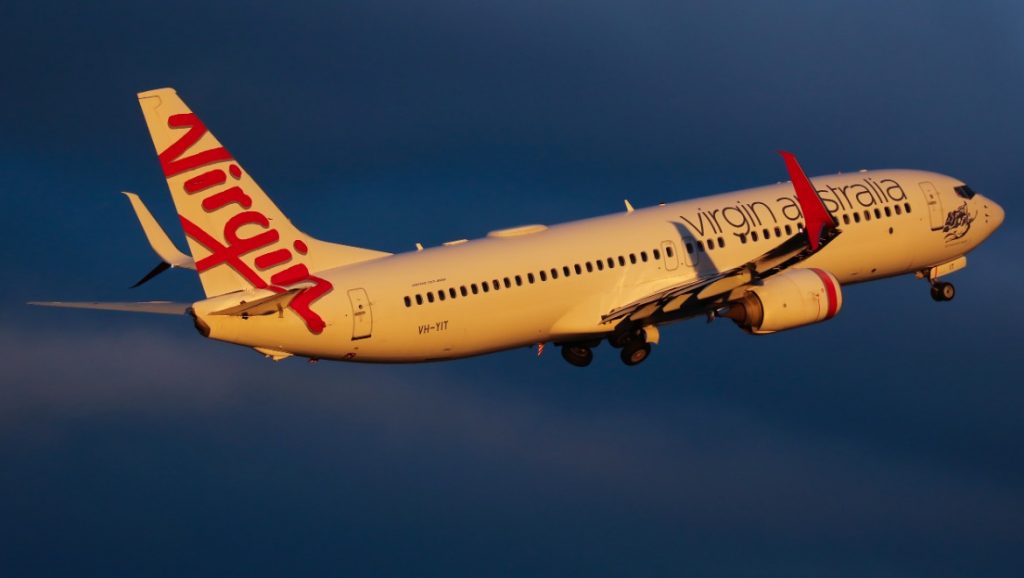
Virgin recorded an underlying loss of $386.7 million in the last financial year as the airline grappled with lockdowns.
The results were significantly worse than the $76.8 million recorded in the previous corresponding period but compares favourably to Qantas’ underlying loss of $1.86 billion.
While the airline is no longer listed on the ASX, it lodged the figures with the corporate regulator on Wednesday.
The document showed revenue rose by 45 per cent to $2.2 billion, but it couldn’t offset an expense bill that led to a statutory loss of $565.5 million.
Chief executive Jayne Hrdlicka said the loss was a “good result in the context of the last year”.
“It’s not one we would like to see again in the future, but it’s a result that speaks to the transition out of a really tough period as an industry into a period that looks pretty bright,” she said. “We are forecasting a profit for the 2023 financial year and a period of continued growth.”
Virgin Australia entered administration in 2020 before Bain beat out Cyrus Capital Partners to purchase the airline.
The purchase included cutting axing 3,000 roles, scraping the Tigerair brand and initially downsizing the business’ 737 fleet from 85 to 56, as well as removing all other aircraft models. It recorded a staggering $3.1 billion loss during its last financial year before the takeover.
However, with COVID-19 restrictions now largely removed, domestic aviation has rebounded to near pre-pandemic passenger numbers, peaking at 97 per cent in June.
The recovery gave Virgin the confidence to announce last month it would acquire another four MAX 8s to take its total domestic fleet to 92 Boeing 737 aircraft.
It marked a significant increase from its original intention of having just 58 aircraft when it emerged from administration.
Chief executive Jayne Hrdlicka said then, “I am delighted that this week we have reached another major milestone with our team growing to over 7,000 team members, which is a real indication of the growth delivered in a very short time by Virgin Australia.
“We are passionate about creating the best employee experience in Australian aviation, and attracting around 2,000 people to our airline in just under two years is testament to the priority we place on our team members.”
Australian Aviation reported in August how Rex’s executive chairman said he was “mildly pleased” at his business’ full-year performance, despite recording a loss before tax of $68 million.
Lim Kim Hai said the lingering impact of COVID-19 meant the airline’s recovery didn’t begin until February 2020.
“Prior to that, both the domestic jet operations and regional Saab operations were either suspended or greatly reduced,” he said.
The business’ results for FY22 saw revenue hit $319 million, including COVID-19 grants of $32 million. This was, however, significantly lower than the $87 million in help it received in FY21.
Qantas chief executive Alan Joyce, meanwhile, revealed the before tax impact of COVID-19 in total amounted to $7 billion, which he called “staggering”.
“The past year has been challenging for everyone. We had to ramp down almost all flying once Delta hit and stay that way for several months before ramping back up through multiple Omicron waves as we all learned to live with COVID-19 in the community,” said Joyce.
















Craig
says:Looks like Bain’s not contributing financially to VA.
Why not?
Seems all they want to do is offload it to the soonest bidder.